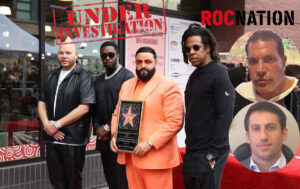Han Tae-soon, who searched for her daughter Kyung-ha for 44 years after her abduction, is suing the South Korean government for failure to protect her from illegal adoption practices. Their heart-wrenching reunion highlights ongoing issues surrounding South Korea's controversial overseas adoption program and the long-lasting trauma for families affected by it.
A Mother's Battle for Justice: 44 Years After Abduction, Lawsuit Against South Korea's Government

A Mother's Battle for Justice: 44 Years After Abduction, Lawsuit Against South Korea's Government
Han Tae-soon reunites with daughter Kyung-ha after decades apart and seeks accountability from the South Korean government over alleged illegal adoption practices.
Han Tae-soon vividly remembers her last moments with her daughter, Kyung-ha, in May 1975. “I went to the market and asked Kyung-ha, ‘Aren’t you coming?’ But she said she was going to play," Ms Han reflected sadly. “When I returned, she was gone.” This heartbreaking separation lasted over four decades until they reunited, and Kyung-ha emerged as Laurie Bender, a middle-aged woman living in America.
In a significant turn of events, Ms Han is currently suing the South Korean government, arguing it failed to stop her daughter’s illegal adoption. Her case is part of a larger movement addressing disturbing claims of fraud, human trafficking, and illegal adoption that have emerged from South Korea's controversial overseas adoption program. Since its inception in the 1950s, Korea has reportedly sent between 170,000 and 200,000 children abroad for adoption, predominantly to Western countries.
In March, a pivotal report uncovered multiple human rights abuses tied to the adoption system, prompting discussions of further lawsuits against the government. Ms Han's case is particularly notable as she is the first biological parent of an overseas adoptee pursuing damages from authorities. Her court session is slated for next month; previously, an American adoptee initiated legal proceedings in 2019.
The government expressed sorrow regarding individuals and families who were unable to find one another but has yet to offer a formal apology to Ms Han. “I spent 44 years ruining myself searching for my daughter. Has anyone ever apologized? No,” Ms Han told the BBC firmly, demonstrating her unwavering resolve.
Desperate for answers, Ms Han tirelessly visited police stations, orphanages, and even put up flyers over the years. She recounted the physical toll taken by this quest, stating, “I was literally searching until all 10 of my toenails fell out.” Hope flickered when she at one point invited a woman, whom she believed to be Kyung-ha, into her home—a hopeful mirage that eventually shattered when the woman confessed to being someone else.
A breakthrough finally emerged in 2019 when Ms Han connected with 325 Kamra, an organization focused on reuniting Korean adoptees with their birth families using DNA matching. The organization successfully located Laurie Bender, and a tearful reunion took place at the airport in Seoul. Ms Han famously recounted that upon touching her daughter’s hair, she instantly recognized that this was indeed her long-lost child.
Kyung-ha's abduction story is as troubling as it is heartbreaking. At just six years old, a woman falsely claiming to know her mother lured her away, telling her she was abandoned. After a series of wrongful turns, she found herself adopted by a couple in Virginia but lived under a fabricated identity stating she was an orphan.
The systemic issues surrounding South Korea's adoption program reveal a deeply tangled history of exploitation and negligence. Initiated in the wake of the Korean War, the program's rapid expansion led to what many experts now criticize as a facilitation of child trafficking. The lack of proper oversight and consent laid the groundwork for widespread human rights violations, leading to the exploitation of thousands of children.
Reports from the Truth and Reconciliation Commission identified numerous cases of neglect and fraud within the adoption process, including improper custodianship and identity fraud to meet high quotas set by foreign agencies. Consequently, many adoptees, like Kyung-ha, endure the harsh fallout of reconstructed identities and missing familial ties.
Despite recent measures to reform the adoption system and increase government accountability, the scars of past practices linger, with many adoptees and birth parents still grappling with unresolved trauma. As families like Ms Han's continue their fights for justice, many hope that their stories will prompt further accountability and support for those affected.
As Ms Han strives to rebuild a relationship with her daughter, language barriers complicate their already fraught connection. Their communications primarily occur through brief texts, and Ms Han dedicates hours each day to practice her English. Yet, she expresses that the loss transcends mere language—“Even though I have found my daughter, it doesn't feel like I've truly found her," she lamented, emphasizing that no amount of restitution can reverse the pain of their shared past.


















